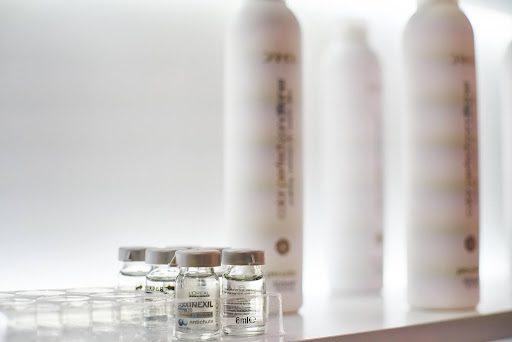As we grow older, changes occur in the skin; it becomes dry, develops wrinkles, and might get easily reactive. This is sometimes very problematic for sensitive skin since it reacts badly to the most common skincare ingredients. Therefore, a skin-friendly serum, is right for your skin type, becomes more crucial in keeping your skin healthy and looking at its best. In this article, we shall discuss the basic requirements of a skin-safe serum meant for sensitive and aging skin.
Understanding Skin Sensitivity and Aging
Sensitive skin is characterized by increased reactivity to environmental factors, leading to symptoms like redness, itching, and irritation. Aging skin tends to lose moisture and elasticity, resulting in fine lines and wrinkles. The combination of these two conditions necessitates a serum like a bakuchiol serum that not only hydrates but also soothes and protects, offering a gentle yet effective solution for sensitive and aging skin.
Key Ingredients to Look For
When searching for a serum suitable for sensitive and aging skin, it is essential to focus on ingredients that provide hydration, repair the skin barrier, and offer anti-aging benefits without causing irritation.
1. Hyaluronic Acid
Hyaluronic acid is a potent humectant that can retain up to 1000 times its weight in water. It keeps the moisture levels of the skin intact, making it plump and hydrated. This ingredient is highly rewarding for aging skin as it reduces the visibility of fine lines and wrinkles by keeping the skin well-hydrated.
2. Glycerin
Like hyaluronic acid, glycerin is another effective humectant that draws moisture into the skin. It helps improve skin hydration without clogging pores, making it ideal for sensitive skin types.
3. Ceramides
Ceramides are lipids that form part of the skin’s natural barrier. They help retain moisture and protect against environmental stressors. Incorporating ceramides into a serum can significantly enhance the barrier function of sensitive skin while preventing moisture loss.
4. Niacinamide
Niacinamide (Vitamin B3) is known for its anti-inflammatory properties, making it suitable for calming irritated skin. It also helps improve skin texture, reduce redness, and even out skin tone—beneficial for both sensitive and aging skin.
5. Antioxidants
Ingredients like Vitamin C and green tea extract provide antioxidant protection against free radicals that contribute to premature aging. These antioxidants help brighten the complexion and reduce the appearance of dark spots while soothing inflammation.
6. Soothing Botanicals
Natural extracts such as chamomile, calendula, and aloe vera offer calming properties that can alleviate irritation associated with sensitive skin. These ingredients provide hydration while promoting healing.
Formulation Considerations
The formulation of a serum is just as important as its ingredients. Here are some aspects to consider:
1. Lightweight Texture
A good serum should have a lightweight texture that absorbs quickly into the skin without leaving a greasy residue. This allows for better penetration of active ingredients.
2. Fragrance-Free
Fragrances can irritate sensitive skin; therefore, opting for fragrance-free formulations reduces the risk of adverse reactions.
3. Non-Comedogenic
Non-comedogenic products help prevent those products from causing pores to be clogged as well as those issues related to acne and sensitivity.
Application Tips
Follow these tips for getting the most out of your serum:
- Wash First: Premise a sensitive skin cleanser to rid your skin of impurities.
- Apply On Damp Skin: While not necessary, applying the serum to slightly dampened skin can enhance absorption
- Pat Gently: Avoid rubbing. Instead gently pat it into your skin.
- Follow with Moisturizer: Lock in hydration by applying a moisturizer after your serum.
Incorporating Serums into Your Routine
Integrating serums into your skincare routine can be done effectively with careful planning:
- Morning Routine: Apply a hydrating serum with antioxidants like Vitamin C in the morning to protect against environmental damage throughout the day.
- Evening Routine: Use a reparative serum containing hyaluronic acid or niacinamide at night to support recovery while you sleep.

Conclusion
Finding a serum for sensitive and aging skin is key to healthy and glowing skin as we age. Look for formulas with hydrating ingredients like hyaluronic acid and glycerin, plus soothing botanicals and antioxidants that can combat aging without irritating. When you incorporate these ingredients into your skincare routine you tackle the specific problems of sensitivity and aging and get smoother and younger-looking skin in the long run.
Using the right serum will do both – boost your skincare and give every woman the confidence to find and love herself at every stage.






